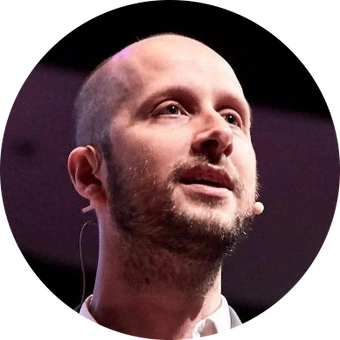Principal Systems Software Engineer

Microsoft
This job is no longer accepting applications
See open jobs at Microsoft.See open jobs similar to "Principal Systems Software Engineer" Matt Wallaert.Principal Systems Software Engineer
Redmond, Washington, United States
Save
Overview
Microsoft has become the world’s center of expertise on topological quantum computing. This development effort includes a staff of theoretical physicists, experimental and engineering teams around the world. Within Microsoft’s Quantum program, the Quantum Hardware & Systems team is creating a high-performance control system for a scalable quantum computer. The overall system is being developed by a diverse and multi-disciplinary team that includes software and hardware architects on a combination of classical and cryogenic systems.
Are you passionate about the next revolution in computing? Do you thrive on solving challenging software engineering problems? Does the thought of building novel quantum computer systems excite you? If so, the Quantum team is looking for you! We are looking for a Principal Systems Software Engineer. Join us and help us deliver the world’s first topological quantum computers!
Microsoft's mission is to empower every person and every organization on the planet to achieve more. At Microsoft Quantum, we aim to empower science and scientists to solve the world's biggest problems by realizing advanced computing platforms at the intersection of high-performance computing, artificial intelligence, and quantum information technology.
For more information about Azure Quantum, visit https://quantum.microsoft.com/.
Qualifications
Required/minimum qualifications:
- Doctorate in Electrical or Computer Engineering, or related field AND 3+ years technical engineering experience with embedded coding in C or C++
- OR Master's Degree in Electrical or Computer Engineering, or related field AND 4+ years technical engineering experience with embedded coding in C or C++
- OR Bachelor's Degree in Electrical or Computer Engineering, or related field AND 6+ years technical engineering experience with embedded coding in C or C++
- OR equivalent experience.
- 6+ years experience in a collaborative environment.
- Ability to meet Microsoft, customer and/or government security screening requirements are required for this role. These requirements include, but are not limited to the following specialized security screenings:
- Microsoft Cloud Background Check: This position will be required to pass the Microsoft Cloud Background Check upon hire/transfer and every two years thereafter.
Citizenship & Citizenship Verification: This role will require access to information that is controlled for export under export control regulations, potentially under the U.S. International Traffic in Arms Regulations (ITAR) or Export Administration Regulations (EAR), the EU Dual Use Regulation, and/or other export control regulations. As a condition of employment, the successful candidate will be required to provide either proof of their country of citizenship or proof of their U.S. permanent residency or other protected status (e.g., under 8 U.S.C. § 1324b(a)(3)) for assessment of eligibility to access the export-controlled information. To meet this legal requirement, and as a condition of employment, the successful candidate’s citizenship will be verified with a valid passport. Lawful permanent residents, refugees, and asylees may verify status using other documents, where applicable.
Preferred Qualifications:
- Experience with RTL and Field-Programmable Gate Array (FPGA) systems.
- Experience with developing high-performance software.
- Experience with Real-Time Operating Systems (RTOS) or bare-metal software programming.
- Experience with (digital) signal processing, including frequency analysis and Radio Frequency (RF) concepts.
- Experience with Python.
- Self-motivated with an ability to succeed in a team-oriented, dynamic environment.
- Detail oriented design, coding, debugging, and problem-solving skills.
Quantum Software Engineering IC5 - The typical base pay range for this role across the U.S. is USD $139,900 - $274,800 per year. There is a different range applicable to specific work locations, within the San Francisco Bay area and New York City metropolitan area, and the base pay range for this role in those locations is USD $188,000 - $304,200 per year.
Certain roles may be eligible for benefits and other compensation. Find additional benefits and pay information here: https://careers.microsoft.com/us/en/us-corporate-pay
Microsoft will accept applications for the role until July 21, 2025.
#Quantum
Responsibilities
This role, as part of the Azure Quantum Hardware & Systems team, will develop software and Register Transfer Level (RTL) across multiple layers of the quantum computing stack, including low level software for 1st and 3rd party lab instrumentation, low level control and readout firmware/software that directly operates the quantum machine, automation used in the bring-up and tuning of the quantum machine, custom quantum machine monitoring solutions, various tooling, and integration with Azure Quantum services.
The ideal candidate for this position is agile and able to adapt to changing conditions and priorities as we learn and grow. Such a candidate has excellent communication and cross-team collaboration skills.
- Develop real-time firmware, drivers, and high-performance user-mode software to operate custom components that comprise the quantum machine.
- Develop software and hardware to coordinate the control and readout capabilities of our 1st party topological qubit technology.
- Support hardware design and development of custom components of the quantum machine.
- Develop custom tooling including Command-Line Interface (CLI) and User Experience (UX) interfaces to support the development and operation of the quantum machine.
- Implement best practices for software development, build, test, and release processes.
- Track, prioritize, and implement new features and maintain related software.
- Troubleshoot, diagnose, and correct issues with the quantum machine hardware or software stack, including software maintenance for custom hardware or software components.
- Create automated testing processes for the software implementations.
- Collaborate effectively with a multidisciplinary team of scientists, physicists, hardware engineers, software engineers, and program management to effect successful outcomes.
- Provide technical support to other internal teams and users of the quantum machine.
- Support a one team, one culture approach.
Other:
This job is no longer accepting applications
See open jobs at Microsoft.See open jobs similar to "Principal Systems Software Engineer" Matt Wallaert.